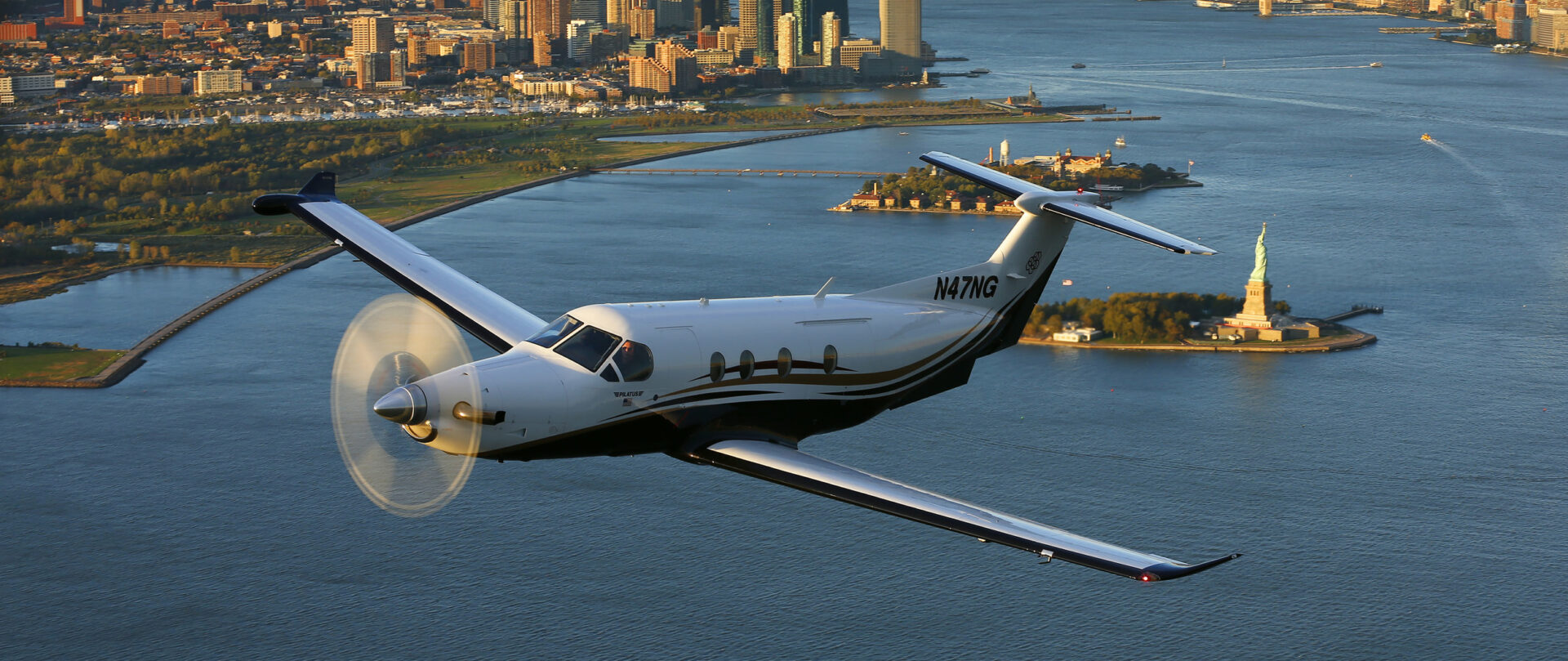On Prescott Street along the northwest edge of Boston Logan International stands a smartly landscaped Modernist building clad in sleek gray steel and stained oak. Offering an artful contrast to the massive parking garage and Massport administration building across the way, this is the Signature Flight Support private terminal. It’s where Tradewind Aviation customers board their 50-minute flight down to the Westchester County airport in White Plains, 20 miles north of Midtown Manhattan. From there they take livery service or the Metro-North commuter train into the city.
Passengers arrive 15-30 minutes before departure from Logan and gather in a clubby lounge with leather seating, attractive lamplight, soothing acoustics, and a soaring glass wall that looks out to the airfield. On this mid-winter Wednesday evening, with a Nor’easter rumbling up the Seaboard, the Tradewind 5:25 departure shows a full manifest of eight passengers, each intent on making a pre-storm getaway.

Soon they’ll be aboard a Pilatus PC-12, climbing to 17,000 feet of altitude in a streamlined, Swiss-made turboprop that cruises at 300 miles per hour. Inside the PC-12 it’s cozy but truly comfortable, with pewter-grey leather upholstery on the seats, the walls, and even the headliner. Baggage gets stowed in an open-rear compartment and standard seating configuration is four rows of two seats flanking a center aisle. This aircraft is squeaky clean and still has that new-airplane smell.
Climate control is critical to making air travel work as it should, and this plane is best-in-class in that department—another reason for its popularity with corporations and private aviation companies. Small planes flying scheduled routes in this part of the world are known to buzz along in summertime with an open cockpit window to cool the pilot, even as passengers feel the heat. Not so with the PC-12, which is also notably low-decibel in its cabin, especially for a prop plane.
At the far corner of the lounge, outbound travelers from this and various other flights speak with Signature concierge staff about their needs and arrangements. The Tradewind pilot, Trevor, his co-pilot, Omar, and a ground representative, Craig, converse with the clientele, many of whom they know on a first-name basis. Clearly this is high-touch, white-glove customer service, but it never seems forced or scripted. Instead there’s an easy camaraderie flowing between crew and passengers.

One flyer is running late, and indeed won’t arrive until 10 minutes before scheduled departure. None of the others bristle at the minor delay. “I think it’s a matter of them knowing that next time it could be them,” muses Craig, himself a trained pilot and flight instructor. “And with private aviation, altered departure times can work in the other direction. If everyone’s here and it’s 20 minutes before scheduled takeoff, we pack up and go.”
A luggage dolly is off to the side, gradually taking on the minimal baggage carried by these attorneys, consultants, investment bankers, venture capitalists, corporate finance officers, or the occasional university professor on a speaking engagement. Catering setup is part of the prep, although given how quick the trip is, in-flight food-and-beverage service is casual. “It’s maybe a two-beer flight,” estimates Trevor, who learned his trade as a bush pilot in Alaska. “Unless somebody’s had a particularly trying day, in which case there may be time for three.”
He has already completed his pre-flight inspection of the PC-12’s airframe, checked tire pressure, and examined his gauges for any possible irregularities—now he’s back to his customer-care detail. “We’re the ground crew, the ramp agents, the baggage handlers, and the flight attendants, along with our main job of piloting the aircraft,” explains Trevor. Tradewind policy is always to man the cockpit with two crew members—not a practice found everywhere in private aviation.

You can book this Tradewind flight through a travel agent or directly with the company. The price is $395 each way, but as low as $295 if you’re a regular who purchases books of tickets at a time—and they’re transferable to clients and family members. “These are people whose time is worth $150 an hour or in many cases much more,” says Craig, “so if they get in one more meeting, skip the need for a hotel night, or get the workday accomplished but stay married because they’re home for dinner instead of not, that’s where the value is.”
As he finishes his thought, a regular on the route—a gentleman with salt-and-pepper hair and wire-rimmed glasses—walks over, shakes hands, and starts up a conversation. Very likely their chat could be about his son’s peewee hockey team—Craig knows the boy’s name, his position, and all about that shorthanded goal he scored in last week’s game. It’s a game, incidentally, that the dad returned home in time to see, after a day spent doing business in New York. So, yes, there’s work, there’s life, and there’s traveling strategically to try and keep the two in balance.

